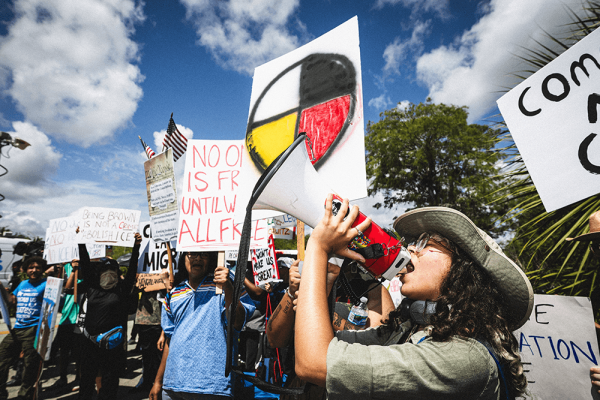Nov 11, 2025
They’re out there, deep in the Florida Everglades every Sunday evening—rain or shine—holding signs, singing songs, and praying.
Since it opened at the beginning of July, Florida’s migrant detention center dubbed "Alligator Alcatraz" has sparked a slew of controversy surrounding its existence, including multiple lawsuits from environmental and civil rights groups seeking to shutter the detention camp.
With pending legal challenges and now a government shutdown, the future of the controversial facility remains uncertain.
But one thing has been constant: Florida faith leaders have shown up week-after-week throughout it all.
Read the Full Article

Already a subscriber? Login
